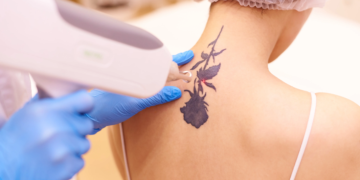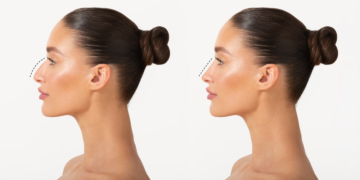With a trend toward individuals adopting preventative healthcare measures to improve their health so they have better quality of life as they age, Testosterone Replacement Therapy (TRT) is becoming more widely accepted and mainstream. Testosterone is an incredibly important hormone in the body and it plays a vital role in not only muscle mass and strength but bone strength, metabolic function, skin, mood, and cognitive function. Testosterone has a bit of a bad reputation because it is associated with underground use in gyms at very high doses for the likes of bodybuilding. Unfortunately, this has tarnished what can actually be a very helpful treatment with a bad name. Indeed, testosterone is naturally produced in the body and essential for optimal bodily function and good health and, in the right doses, is key for supporting healthy ageing.
Age-related testosterone decline and what that means for men
You may have heard of age-related testosterone decline; between the ages of 30 and 40 testosterone levels in men decline as a result of ageing. This is sometimes referred to as the ‘male menopause’ as the occurrence is similar to what happens to women when oestrogen levels decline during the menopausal phase of life. Although age-related testosterone decline is normal, it can lead to symptoms that can severely impact your quality of life. Low testosterone is more common as men get older and in men with poor general health.
In addition to age-related factors, there are other things that can influence an individual’s testosterone levels. This includes damage to the testicles perhaps from an infection like an STI or an injury, anabolic steroid use, obesity, poor sleep, and stress. Health conditions like type 2 diabetes, sleep apnoea, problems with the pituitary gland (also called hypogonadism), genetic disorders, and even chemotherapy, radiation and certain medications can influence the production of testosterone and lead to a deficiency.
Men with low testosterone are likely to experience poor energy levels, poor mood (anxiety and irritability) skin problems (acne and greasiness), reduced muscle mass (1-3% loss of mass each year from the age of 40), increased fat around the gut area, issues with fertility and also issues with libido like decreased sex drive and erectile dysfunction. All of these can combine to make life more challenging. Some symptoms that you may not notice but that happen in the background include loss of bone mass and increased risk of cardiovascular disease which impacts the heart and blood vessels and can lead to strokes, heart attacks, angina, and even heart failure.

When you need TRT
Testosterone replacement therapy can feel like a big step but it can be completely life-changing for some individuals. How do you know when you need TRT? When symptoms are affecting your daily life or even if you want to just take a preventative approach to your health and ensure you remain in good health for longer – the earlier the better.
You should not try to diagnose low T yourself and should seek the advice of a health care professional who specialises in hormone optimisation. Before any testosterone treatment is started, your healthcare provider will need to carry out blood tests to confirm a testosterone deficiency and establish that it will be beneficial for you. A TRT clinic in London offering a comprehensive approach, will not just rely on blood tests but will also combine with an assessment of your symptoms, overall health, and lifestyle.
The benefits of testosterone replacement therapy for men looking to improve their health
- Improves libido, desire and erection quality
- Boosts energy levels
- Helps to reduce anxiety and improve mood
- Helps maintain good skin health
- Can help improve sleep quality
- Improves muscle mass
- Aids weight management, specifically around the gut and mid-section Testosterone can help lower fat mass and manage glycemic control.
- Lowers risk of cardiovascular disease
- Maintains bone strength
There are different forms of TRT available through private hormone clinics and if you are deemed suitable then you will be prescribed the one that works best with your lifestyle, preferences and budget. Testosterone can be prescribed in many different forms, but some of the most popular include liposomal gels that can be applied directly to the skin on a daily basis, and injectables which are usually weekly. Some clinics are also offering pellet implants (though these can be costly) that are inserted under the skin and last for months. Although injectables are usually the most popular choice, testosterone gels are also a good choice for people who do not like the idea of injecting themselves.

TRT should always be used alongside other approaches such as lifestyle changes like exercise, eating a balanced diet, cutting back on smoking and alcohol, and consideration of other lifestyle aspects – though your hormone doctor should discuss this with you at your consultation. Mental health therapy may also be encouraged A comprehensive plan of attack is the best approach and is more likely to give you better results and have a greater impact on a quality of life.
The Practicalities of TRT: A Note On Travelling
It is easy to overlook some of the practicalities of being on injectable medication and there are some considerations to take into account, especially when it comes to travelling outside of the UK. Your medication will need to be kept at a specific temperature whilst you are travelling and may require the use of an insulated cold bag in order to maintain this through the airport and during flights. You will also need to carry the medication in the original packaging in your hand luggage, check it fits within the liquid restrictions, and check the entry requirements for where you are travelling to before you book any travel to ensure you can legally bring the medication into the country. You will also require a travel letter to show as proof of your prescription.
Taking your first steps towards treating testosterone deficiency
Choosing TRT to improve your quality of life is a big decision that requires commitment and investment and you’ll want to research well. Make a list of any questions you have and be sure to ask the TRT or hormone clinic you’re considering before committing. This will not only help to ensure you feel in your decision, but will help you to understand if you like the clinic’s individual approach. We wish you the best on your TRT journey – happy healthing!













